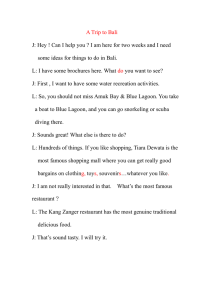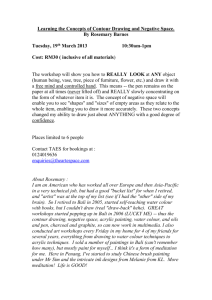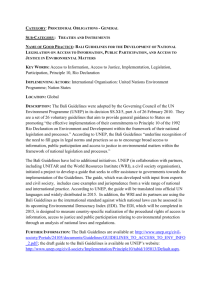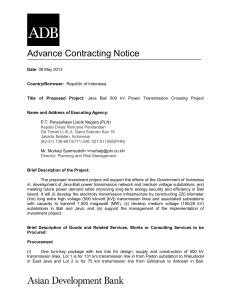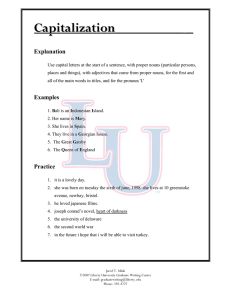Contribution of Rev. Jonas Dah
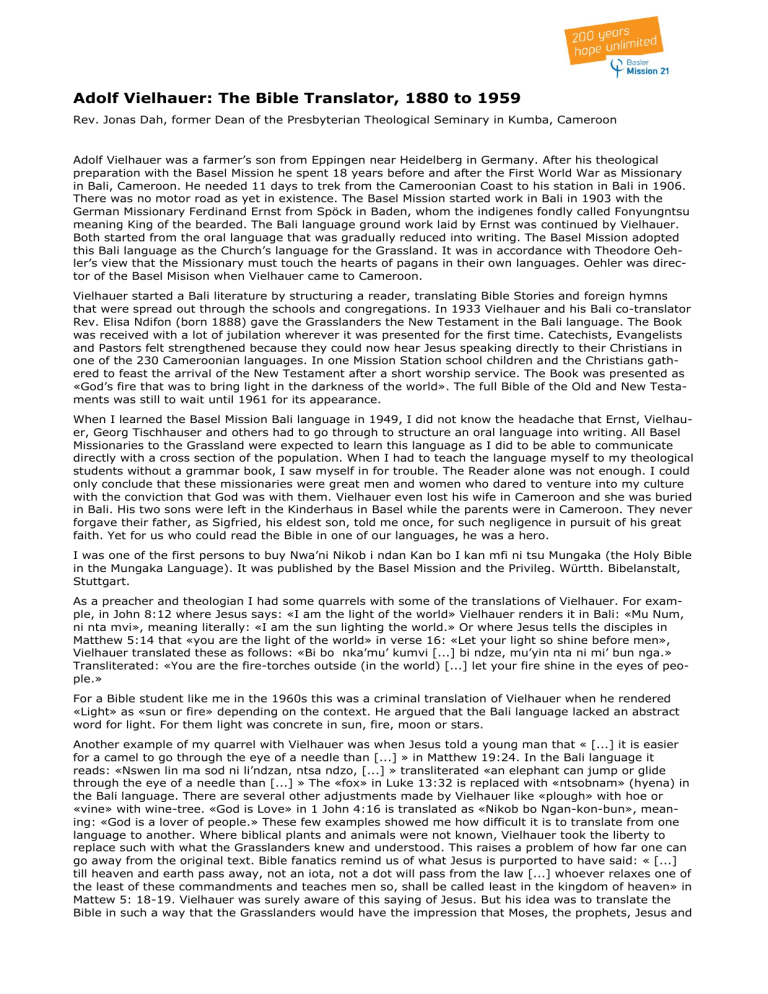
Adolf Vielhauer: The Bible Translator, 1880 to 1959
Rev. Jonas Dah, former Dean of the Presbyterian Theological Seminary in Kumba, Cameroon
Adolf Vielhauer was a farmer’s son from Eppingen near Heidelberg in Germany. After his theological preparation with the Basel Mission he spent 18 years before and after the First World War as Missionary in Bali, Cameroon. He needed 11 days to trek from the Cameroonian Coast to his station in Bali in 1906.
There was no motor road as yet in existence. The Basel Mission started work in Bali in 1903 with the
German Missionary Ferdinand Ernst from Spöck in Baden, whom the indigenes fondly called Fonyungntsu meaning King of the bearded. The Bali language ground work laid by Ernst was continued by Vielhauer.
Both started from the oral language that was gradually reduced into writing. The Basel Mission adopted this Bali language as the Church’s language for the Grassland. It was in accordance with Theodore Oehler’s view that the Missionary must touch the hearts of pagans in their own languages. Oehler was director of the Basel Misison when Vielhauer came to Cameroon.
Vielhauer started a Bali literature by structuring a reader, translating Bible Stories and foreign hymns that were spread out through the schools and congregations. In 1933 Vielhauer and his Bali co-translator
Rev. Elisa Ndifon (born 1888) gave the Grasslanders the New Testament in the Bali language. The Book was received with a lot of jubilation wherever it was presented for the first time. Catechists, Evangelists and Pastors felt strengthened because they could now hear Jesus speaking directly to their Christians in one of the 230 Cameroonian languages. In one Mission Station school children and the Christians gathered to feast the arrival of the New Testament after a short worship service. The Book was presented as
«God’s fire that was to bring light in the darkness of the world». The full Bible of the Old and New Testaments was still to wait until 1961 for its appearance.
When I learned the Basel Mission Bali language in 1949, I did not know the headache that Ernst, Vielhauer, Georg Tischhauser and others had to go through to structure an oral language into writing. All Basel
Missionaries to the Grassland were expected to learn this language as I did to be able to communicate directly with a cross section of the population. When I had to teach the language myself to my theological students without a grammar book, I saw myself in for trouble. The Reader alone was not enough. I could only conclude that these missionaries were great men and women who dared to venture into my culture with the conviction that God was with them. Vielhauer even lost his wife in Cameroon and she was buried in Bali. His two sons were left in the Kinderhaus in Basel while the parents were in Cameroon. They never forgave their father, as Sigfried, his eldest son, told me once, for such negligence in pursuit of his great faith. Yet for us who could read the Bible in one of our languages, he was a hero.
I was one of the first persons to buy Nwa’ni Nikob i ndan Kan bo I kan mfi ni tsu Mungaka (the Holy Bible in the Mungaka Language). It was published by the Basel Mission and the Privileg. Württh. Bibelanstalt,
Stuttgart.
As a preacher and theologian I had some quarrels with some of the translations of Vielhauer. For example, in John 8:12 where Jesus says: «I am the light of the world» Vielhauer renders it in Bali: «Mu Num, ni nta mvi», meaning literally: «I am the sun lighting the world.» Or where Jesus tells the disciples in
Matthew 5:14 that «you are the light of the world» in verse 16: «Let your light so shine before men»,
Vielhauer translated these as follows: «Bi bo nka’mu’ kumvi [...] bi ndze, mu’yin nta ni mi’ bun nga.»
Transliterated: «You are the fire-torches outside (in the world) [...] let your fire shine in the eyes of people.»
For a Bible student like me in the 1960s this was a criminal translation of Vielhauer when he rendered
«Light» as «sun or fire» depending on the context. He argued that the Bali language lacked an abstract word for light. For them light was concrete in sun, fire, moon or stars.
Another example of my quarrel with Vielhauer was when Jesus told a young man that « [...] it is easier for a camel to go through the eye of a needle than [...] » in Matthew 19:24. In the Bali language it reads: «Nswen lin ma sod ni li’ndzan, ntsa ndzo, [...] » transliterated «an elephant can jump or glide through the eye of a needle than [...] » The «fox» in Luke 13:32 is replaced with «ntsobnam» (hyena) in the Bali language. There are several other adjustments made by Vielhauer like «plough» with hoe or
«vine» with wine-tree. «God is Love» in 1 John 4:16 is translated as «Nikob bo Ngan-kon-bun», meaning: «God is a lover of people.» These few examples showed me how difficult it is to translate from one language to another. Where biblical plants and animals were not known, Vielhauer took the liberty to replace such with what the Grasslanders knew and understood. This raises a problem of how far one can go away from the original text. Bible fanatics remind us of what Jesus is purported to have said: « [...] till heaven and earth pass away, not an iota, not a dot will pass from the law [...] whoever relaxes one of the least of these commandments and teaches men so, shall be called least in the kingdom of heaven» in
Mattew 5: 18-19. Vielhauer was surely aware of this saying of Jesus. But his idea was to translate the
Bible in such a way that the Grasslanders would have the impression that Moses, the prophets, Jesus and
the apostles were Grasslanders. That is why he never hesitated to use the symbols and images known to the people of the area.
Vielhauer left Cameroon in 1939 while I was born in 1940. He died in 1959 when I had just completed with primary school. When the New Testament in Bali language got to us in 1933, it was a great achievement for Vielhauer and Ndifon who had been working together with him in Germany from October
1931 to October 1933 and from March 1954 to December 1955. Adolf Vielhauer was compensated for his endeavours by the Faculty of Theology of the University of Heidelberg, Germany with a Dr. h.c. Theology.
Elisa Ndifon was not even given a Red Feather which would have been our highest honours. However, he was made a Knight of Bali with the title gwansadla. He died in 1971.
